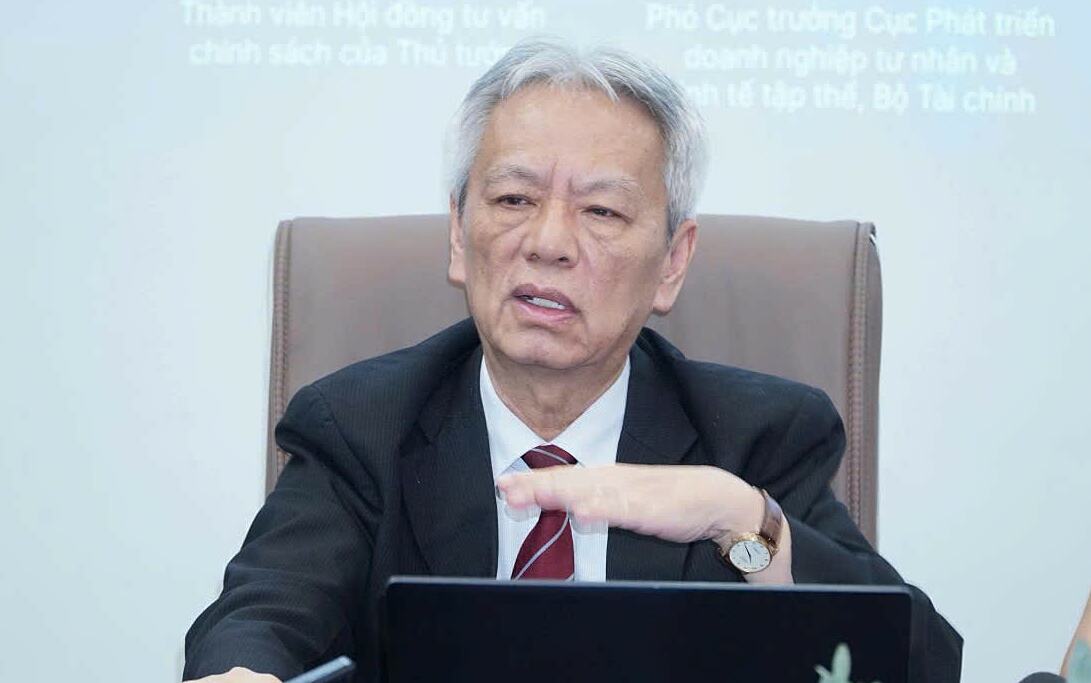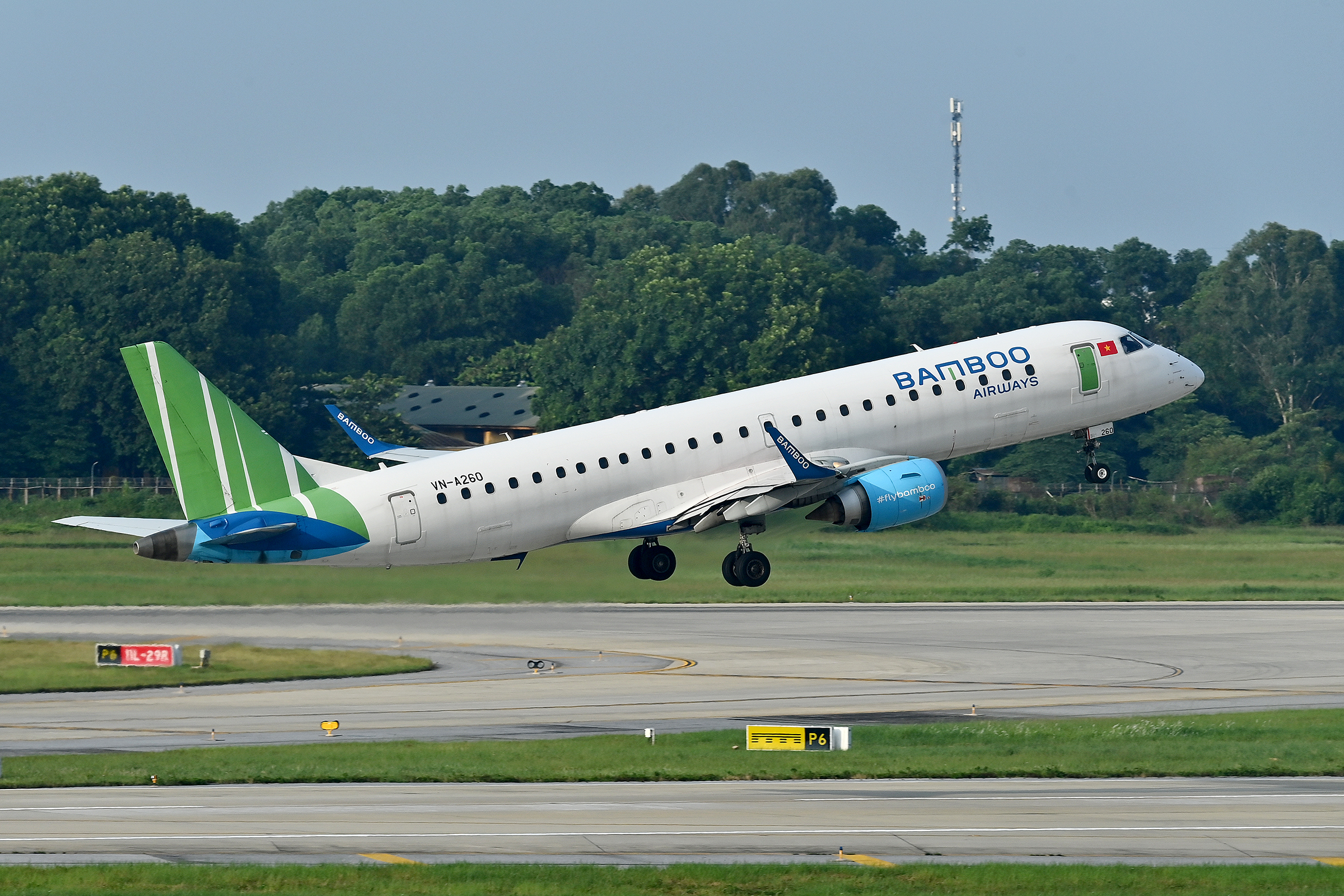At the "Resolution 68 - Opportunities for Vietnam's private airlines" seminar on 10/7, Dr. Nguyen Si Dung, a member of the Prime Minister's Policy Advisory Council, said that mandatory conditions for establishing new airlines, such as the minimum capital requirement of 700-1,300 billion VND depending on fleet size, are among the barriers preventing many private businesses from even entering the game.
Dr. Dung suggested that businesses should be allowed to start small and gradually expand their scale, invest in more aircraft, and increase capital and operational capacity. He argued that the State should not impose overly rigid restrictions at the initial stage.
Another obstacle is the regulation on aircraft maintenance. Currently, businesses are required to have their own maintenance capabilities or cooperate with licensed units. This has led to maintenance contracts that are almost monopolistic, preventing businesses from negotiating costs or service quality.
Similarly, ground handling services, such as airline meals, baggage handling, and airport management, need to be opened up to create healthy competition and reduce costs for airlines. Airport and ground handling service fees also lack competition, increasing the burden on private airlines.
Dr. Dung stated that the State needs to revise regulations soon, shifting from licensing management to post-inspection to prevent businesses from essentially "failing from the starting line" due to excessively strict mechanisms.
 |
Dr. Nguyen Si Dung, Member of the Prime Minister's Policy Advisory Council. Photo: Anh Duy |
Dr. Nguyen Si Dung, Member of the Prime Minister's Policy Advisory Council. Photo: Anh Duy
From a business perspective, Dr. Luong Hoai Nam, CEO of Bamboo Airways, explained that after 2016, private airlines seeking licenses also require an investment registration certificate. Airlines like Vietjet, Vietnam Airlines, and Pacific Airlines only needed an air transport business license. However, newer airlines like Vietravel Airlines and Bamboo Airways must have two licenses: air transport and investment registration.
Dr. Nam believes this regulation needs revision due to its inequity and lack of value for businesses.
Another issue is access to investment and operations at airports. Due to historical reasons, Vietnam Airlines holds significant land at airports, allowing them to deploy services for a closed aviation ecosystem. Private airlines like Bamboo Airways lack this land, preventing them from developing their own ecosystems, from ground handling, technical services, and logistics to airport commerce.
"There's no mechanism for private airlines to access airport land for investment and business. We've developed projects and submitted lease applications, but nothing has materialized," said Dr. Luong Hoai Nam, adding that with equal access, private aviation could develop closed ecosystems, creating value for the industry and the economy.
Attracting foreign investment in aviation after 30 years of opening up remains difficult, with regulations limiting the rights of foreign investors. Currently, investors owning over 35% of capital have veto power.
"They invest but have no decision-making power. This regulation should be removed or made more flexible," the Bamboo Airways CEO proposed.
Previously, ANA (Japan) acquired nearly 10% of Vietnam Airlines' shares, and Qantas (Australia) invested 30% in Pacific Airlines. However, both foreign investors have since divested.
 |
Aircraft at Noi Bai International Airport. Photo: Giang Huy |
Aircraft at Noi Bai International Airport. Photo: Giang Huy
Regarding solutions, Dr. Nguyen Si Dung suggested that the Ministry of Construction should review the conditions for opening the market and creating a favorable environment for new businesses. "There needs to be a flexible mechanism adjusted for seasons, specific routes, and service quality," he stated.
Simultaneously, barriers related to infrastructure, such as land acquisition, clearance, and allocation for airport construction or expansion projects, need to be addressed. This is a key factor in attracting greater private investment in aviation infrastructure.
Trinh Thi Huong, Deputy Director of the Department of Private Enterprise and Collective Economy Development (Ministry of Finance), agreed that removing institutional bottlenecks is a prerequisite for private airlines to participate and develop effectively.
According to Huong, the Ministry of Construction and the Ministry of Finance are collaborating on an administrative reform project related to business activities. In the future, the government will establish a National Steering Committee to implement Resolution 68 on private sector development. One of its goals is to remove policy bottlenecks and promote private sector growth.
Doan Loan












